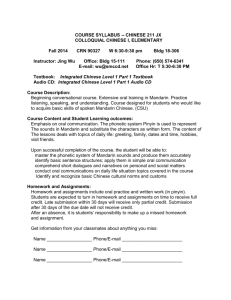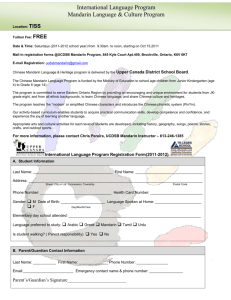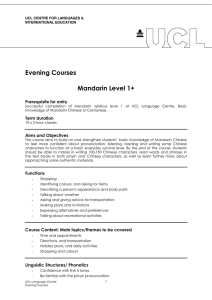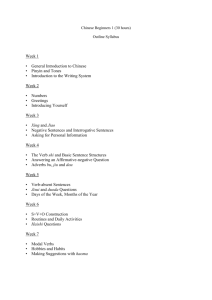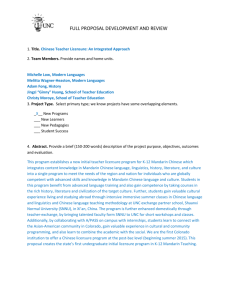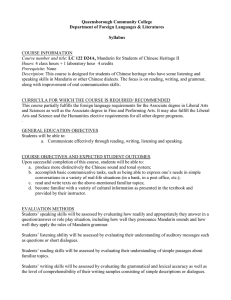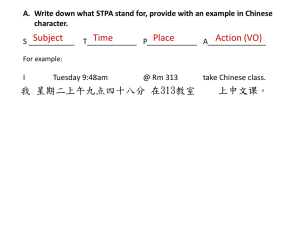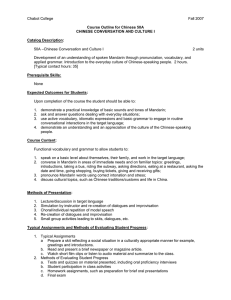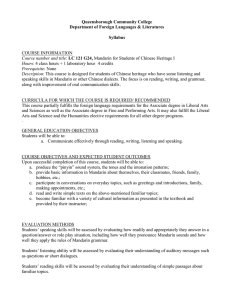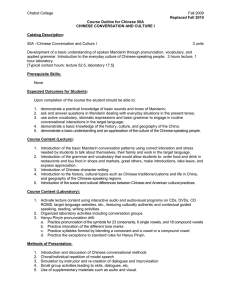Learn Mandarin Chinese: Basic Phrases & Vocabulary
advertisement
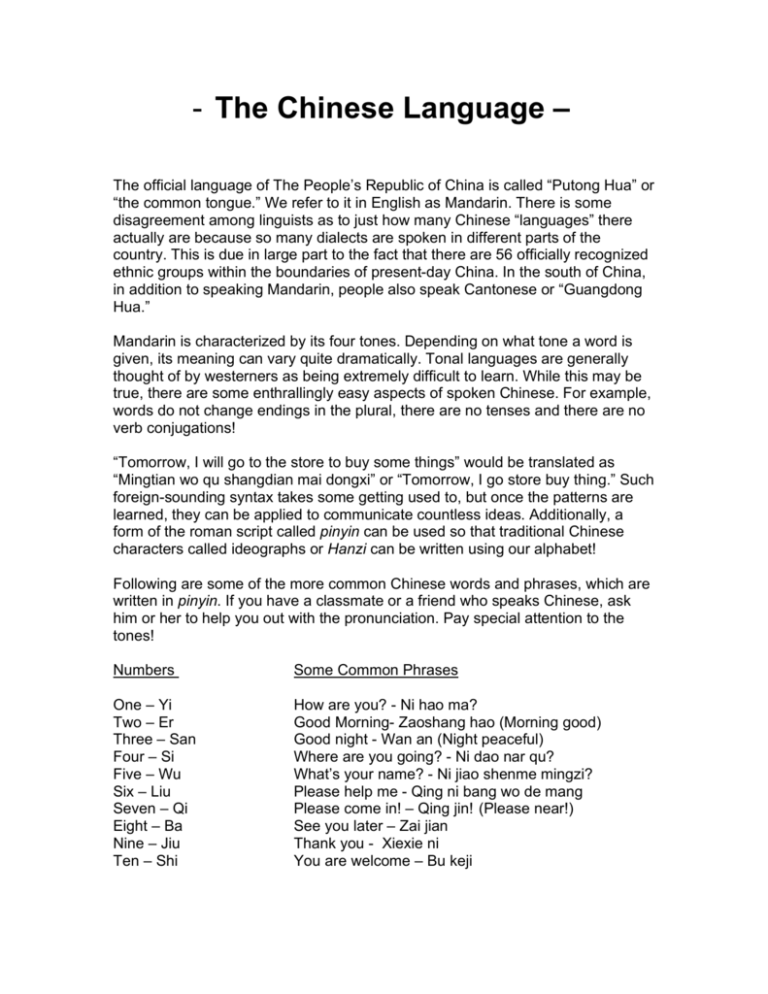
- The Chinese Language – The official language of The People’s Republic of China is called “Putong Hua” or “the common tongue.” We refer to it in English as Mandarin. There is some disagreement among linguists as to just how many Chinese “languages” there actually are because so many dialects are spoken in different parts of the country. This is due in large part to the fact that there are 56 officially recognized ethnic groups within the boundaries of present-day China. In the south of China, in addition to speaking Mandarin, people also speak Cantonese or “Guangdong Hua.” Mandarin is characterized by its four tones. Depending on what tone a word is given, its meaning can vary quite dramatically. Tonal languages are generally thought of by westerners as being extremely difficult to learn. While this may be true, there are some enthrallingly easy aspects of spoken Chinese. For example, words do not change endings in the plural, there are no tenses and there are no verb conjugations! “Tomorrow, I will go to the store to buy some things” would be translated as “Mingtian wo qu shangdian mai dongxi” or “Tomorrow, I go store buy thing.” Such foreign-sounding syntax takes some getting used to, but once the patterns are learned, they can be applied to communicate countless ideas. Additionally, a form of the roman script called pinyin can be used so that traditional Chinese characters called ideographs or Hanzi can be written using our alphabet! Following are some of the more common Chinese words and phrases, which are written in pinyin. If you have a classmate or a friend who speaks Chinese, ask him or her to help you out with the pronunciation. Pay special attention to the tones! Numbers Some Common Phrases One – Yi Two – Er Three – San Four – Si Five – Wu Six – Liu Seven – Qi Eight – Ba Nine – Jiu Ten – Shi How are you? - Ni hao ma? Good Morning- Zaoshang hao (Morning good) Good night - Wan an (Night peaceful) Where are you going? - Ni dao nar qu? What’s your name? - Ni jiao shenme mingzi? Please help me - Qing ni bang wo de mang Please come in! – Qing jin! (Please near!) See you later – Zai jian Thank you - Xiexie ni You are welcome – Bu keji
